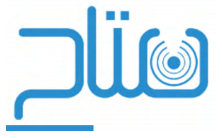Saudi Arabia approved their ICT national plan in 2008, which highlighted the ways of supporting the free/open source software in the kingdom, they defined this software in the plan as “software that can be freely accessed and edited. It does not belong to the ownership of any party”.
Saudi Arabia’s ministry of Communications and information Technology assigned a complete project to support the free/open software industry to King Abdul Aziz City for Science & Technology (KACST) as a involved in its implementation, which It has established the National Program for the Technologies of Free and Open Source Software dubbed (Motah), where it explained that (Motah) aims to encourage and promote the use of free/open source software, and boosts research and development efforts in this area.
Contents
Objectives of supporting free/open source software project
The ministry listed the objectives of supporting free/open source software project at several points; Notable to mention:
1- Encourage local programming industry depending on free software for its programming requirements.
2- Creating a thriving market through the selling of services and technical support.
3- Cost saving by becoming less dependent on software licenses for over-the-shelf-software.
Also, King Abdul Aziz City for Science & Technology (KACST) established partnerships with several parties in the public and private sectors to provide logistical and technical training, legal services and strategic support to ensure the success of the project, and it held a number of introduction workshops, lectures and success stories, in addition to held several intensive training programs with third party partners.
KACST represented in the program (Motah) cooperated with the Malaysian program for free/open source software (MAMPU) in order to transfer the Malaysian experience in the field to Saudi Arabia, and to exchange the experiences, also, in 2013, KACST supported through its Technology Incubator (Baader) the establishing of "Linux" festival, which held to represent the Linux operating system directly in front of the users in the city of Riyadh, in addition to helping users to install the system on their computers.
Important tasks performed in support of FOSS industry
And among the most important tasks performed in support of the free/open source software industry:
1. The launch of the award (Motah) to encourage work in this area
2. Create a Saudi team of developers to work on the localization and revision of free/open source software.
3. Create a special site to the national program of free/open source software www.motah.org.sa.
4. Develop an initial version of national operation system based on a Linux distribution.
5. Develop a core of a digital library based on open content.
Motah contributors also worked to strengthen the LibreOffice suit’s Arabic support, as the program cooperated with Document Foundation in Germany to develop the suit. This development partnership also used to launch a training program for (Motah) team in the Czech Republic in 2013, where the team gaining new experiences in the development of free/open source software. The team also contributed to solving a number of bugs in the LibreOffice suite. In 2014, Document Foundation announced that (Motah) team helped to upload 200 edits to the suite, solved 70 Arabic support issues and developed an easy way to support RTL languages in the suite.
Motah program also cooperated with the Arab Organization for Education, culture and Science (ALECSO) to build the Arabic network for free/open source software.
Beside this tasks, Motah program helped with adding the Free/open source definitions on Saudi Arabia school curriculums, as in 2013 the Saudi Arabia’s ministry of education added, in High school first grade curriculum, chapters of free/open source software definitions, how to install the Ojuba Linux OS distributions, and how to use LibreOffice and OpenOffice suites.
Yesser initiative
Considering the crucial significance of this matter, an initiative for identification and using of open source software has been included in the e-Government 2nd Action Plan. The initiative (which called Yesser) objectives provides for:
1- Encouraging of identification, development and utilization of open source software in Saudi government agencies.
2- Delivering of advisory services on open source software applications in government agencies.
3- Providing of guidelines on the world best practices with respect to introducing of open source software in government agencies.
4- Provide awareness and training for government agencies on the utilization of open source software.
5- Create favorable environments through which interdepartmental collaboration can be maximized, ensure sharing of respective ideas, best practices and achievements.
Initiative implementation tools:
1- Investigate existing status in government agencies with respect to adopting and utilization of free software.
2- Conduct training workshops on important issues in the area of adoption and utilization of open source software in government agencies.
3- Provide support to government agencies on developing of strategies, policies and business processes for utilization of open source software.
These fruitful efforts have enticed a lot of government agencies on the significance of the open source software, adoption of the concept and creating a keen interest to utilize them.
Some implantation results
From its side, the e-Government Program has adopted the open source software concept. The following parties have benefited from the program in establishing of their own websites and electronic platforms:
1- Saudi Community: A social platform that boosts social involvement and transparency between the public and the government agencies through discussion and suggestions. It allows interaction between members of the public and the government agencies through discussion panels, Saudi Blog, and Our Ideas platform.
2- Transition Community: A platform for IT and e-Government professionals. Through discussion and suggestions, it boosts knowledge sharing among professionals on the Saudi society e-transition. It allows interaction among them using discussion panels, blog, and ideas platforms.
3- Open data portal: an e-Government initiative designed to create an open data center for the public and to boost transparency and involvement. It is a platform that publishes government agencies’ databases for access by the public who can download and use the data.





